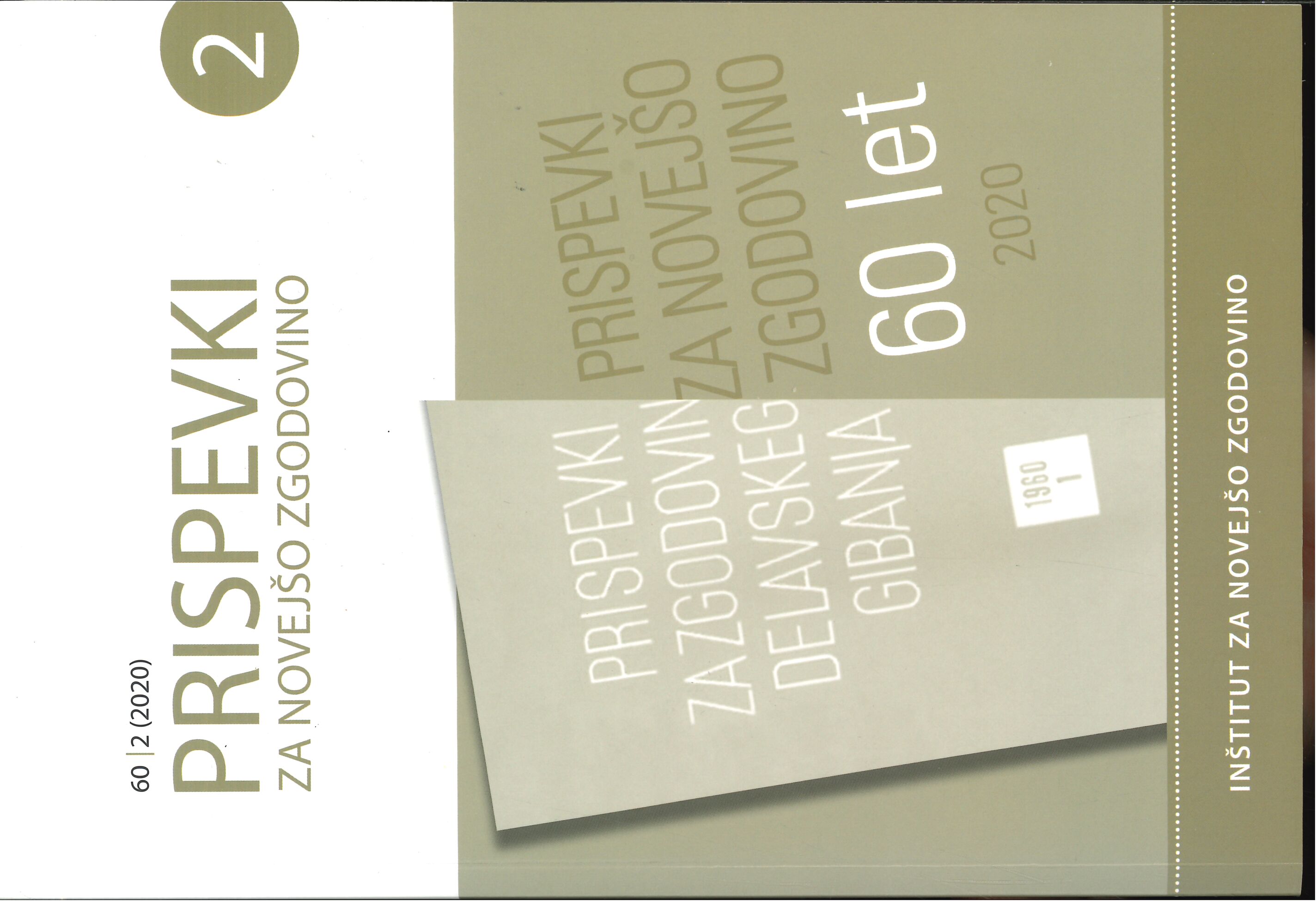Managing the Russian Refugee Issue in the Kingdom of SHS
DOI:
https://doi.org/10.51663/pnz.60.2.04Keywords:
White Russian emigration, refugees, Nansen passports, crisis managementAbstract
During the Russian Civil War (1917–1922) and after the introduction of communism in Russia, a large number of people (according to various assessments more than a million), supporters of the former Tsarist regime or opponents of Bolshevism, left Russia and emigrated abroad. This exodus resulted in the Russian refugee crisis, as humanitarian organisations and the countries these refugees migrated to were ill-equipped to receive so many people. The Russian refugees thus mostly lived in poverty and scarcity without any legal protection. Such circumstances gave rise to the first significant attempts to manage the crisis and find ways to ensure the international protection of refugees. Formal international efforts to help the Russian refugees began in 1921 when the International Committee of the Red Cross asked the League of Nations for assistance. Larger organised groups of Russian emigrants also arrived in the Kingdom of SHS. They represented a huge burden for the country, especially given the local economic situation. The contribution thus thoroughly examines how these emigrants were treated and integrated into the society, especially in view of the humanitarian aid and the resolution of their legal status.
References
Arhivski viri
SI AS – Arhiv Republike Slovenije:
SI AS 1931, Republiški sekretariat za notranje zadeve SRS.
Časopisni viri
Jutro, 6. 1. 1926, 9. »Kratek pregled življenja 'Zveze ruskih študentov na ljubljanski univerzi' od leta 1921.«
Jutro, 6. 1. 1926, 9. »Ruska kolonija v Ljubljani.«
Ptujski list, 16. 1. 1921, 2. »Ruski koncert v Ptuju.«
Ptujski list, 3. 7. 1921, 2. »Pozor!.«
Руль; russische demokratische Tageszeitung, 16. 9. 1921, 2. »Америка и Лига Нацiй.«
Руль; russische demokratische Tageszeitung, 4. 1. 1922, 5. »Обшее собранiе русскаго студенческаго союза.«
Literatura
Арсеньев, Алексей, Кириллова, Ольга, Сибинович, Милорад. Русская эмиграция в Югославии. Москва : Издательство Индик, 1996.
Бочарова, Зоя. »Правовое положение русских беженцев во Франции в 1920–1930-е годы.« Россия и современный мир (2017): 161–76.
Головкин, Александр. »Предпринимательская деятельность русской эмиграции на Балканах (1920-1930-е гг.).« Вестник РУДН, серия Истоия России, но. 2 (2013): 99–108.
Гусефф, Катрин. Русская эмиграция во Франции: социальная история (1920–1939). Москва : Новое литературное обозрение, 2014.
Johnson, T. F.. International Tramps. From chaos to permanent world peace. London: Hutchinson, 1938.
Йованович, Мирослав. Русская эмиграция на Балканах: 1920–1940. Москва: Русский путь, 2006.
Краснова, Татьяна. »Русское зарубежье и печать русского зарубежья в контексте миграционных процессов эпохы кризиса.« Научные ведомости. Серия Гуманитарные науки, но. 24 (95), выпуск 8, (2010): 210–17.
Long, Katy. »Early repatriation policy. Russian refugee return. 1922–1924.« Journal of Refugee Studies, št. 22(2) (2009): 133–54.
Pulko, Radovan. Ruski emigranti na Slovenskem: 1921–1941. Logatec: Vojni muzej, 2004.
Pulko, Radovan. Rusko zamejstvo v slovenskih deželah. Kidričevo: Zgodovinsko društvo, 2018.
Pulko, Radovan. »Sanatorij ruskega rdečega križa Vurberk.« Arhivi, 41, št. 1 (2018): 127–42.
Rubinstein, John L.. »The Refugee Problem.« International Affairs 15 (September-October 1936): 716–34.
Шлёгель, Карл. Берлин, Восточный вокзал. Русская эмиграция в Германии между двумя войнами (1918–1945). Москва : Новое литературное обозрение, 2004.
Vernant, Jacques. The Refugee in the Post-War World. New Haven: Yale University Press, 1953.
Выгодский, Семён. Внешняя политика СССР в 1924–1929 гг. Москва: Госполитиздат, 1963.
Zadnikar, Gita. »Ruska begunska kriza in njena reševanja.« Monitor ISH, XVII / 1, (2016): 33–46.
Жуков, В. Ю. Зарубежная Россия: эмиграция и эмигранты. Русская эмиграция и фашизм: Статьи и воспоминания. Санкт-Петербург: СПБГАСУ, 2011.
Downloads
Published
Issue
Section
License
Authors who publish with this journal agree to the following terms:
- Authors retain copyright and grant the journal right of first publication with the work simultaneously licensed under a Creative Commons Attribution License that allows others to share the work with an acknowledgement of the work's authorship and initial publication in this journal.
- Authors are able to enter into separate, additional contractual arrangements for the non-exclusive distribution of the journal's published version of the work (e.g., post it to an institutional repository or publish it in a book), with an acknowledgement of its initial publication in this journal.
- Authors are permitted and encouraged to post their work online (e.g., in institutional repositories or on their website) prior to and during the submission process, as it can lead to productive exchanges, as well as earlier and greater citation of published work (See The Effect of Open Access).


